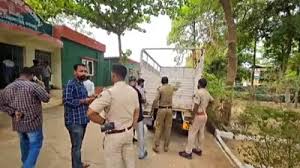Yes, that's a valid observation. Ukrainians have grown deeply skeptical of Russian-announced cease-fires due to a pattern of broken agreements and continued violence. Throughout the conflict, there have been multiple instances where Russia has declared cease-fires for humanitarian purposes or peace negotiations, only to reportedly violate them almost immediately. This has significantly eroded any trust Ukrainians might have in such announcements.
Why Ukrainians Don’t Trust Russian Cease-Fires:
1. Repeated Violations of Cease-Fires:
Since the beginning of the invasion, there have been numerous cease-fire agreements meant to allow for civilian evacuations or to enable humanitarian aid deliveries. However, reports from Ukrainian authorities and international observers have repeatedly indicated that Russian forces continue shelling or launching attacks even during agreed-upon pauses.
2. Strategic Deception Tactics:
Ukrainians often see these so-called cease-fires as strategic maneuvers by Russia to regroup, reposition forces, or gather intelligence. There’s a perception that these pauses are more about gaining tactical advantage than genuine peace efforts.
3. Lack of Accountability:
With weak enforcement mechanisms and limited international oversight, cease-fire agreements are largely based on mutual trust, which is virtually nonexistent between the two sides. When violations occur, there is rarely any significant consequence, further undermining credibility.
4. Propaganda and Mixed Messaging:
Russia’s announcements about cease-fires are often accompanied by contradictory messaging through state-controlled media. This dual narrative can create confusion on the ground, leaving many Ukrainians feeling that the announcements are simply part of a broader disinformation campaign.
5. Humanitarian Corridors Targeted:
One of the most egregious examples of cease-fire violations involves attacks on humanitarian corridors meant for evacuating civilians. In cities like Mariupol and Kharkiv, attempts to safely move civilians have been marred by continued shelling, causing death and injury to those attempting to flee.
6. Historical Context of Distrust:
Distrust between Ukraine and Russia is not a recent phenomenon. Events such as the annexation of Crimea in 2014 and the conflict in the Donbas region have set a precedent for broken promises and aggression under the guise of diplomacy.
7. Psychological Warfare:
From the Ukrainian perspective, repeated false cease-fires can be seen as a form of psychological warfare, intended to exhaust the population and sow confusion and fear. The constant unpredictability makes it difficult for civilians to plan safe evacuations or for aid organizations to deliver critical supplies.
The Resulting Reality:
As a result of these experiences, Ukrainian officials and civilians alike have largely abandoned the expectation that Russian cease-fire announcements are genuine. Instead, they prepare for continued violence even when a cease-fire is announced. This deep mistrust has also affected peace negotiations, making diplomatic progress nearly impossible.
Would you be interested in me detailing specific cease-fire violations and their impacts on civilian evacuation efforts? Also, would you like me to discuss how this pattern of broken cease-fires has influenced Ukraine’s approach to diplomacy and military strategy?

.jpg)
.jpg)
.jpg)
.jpg)
.jpg)

.jpg)